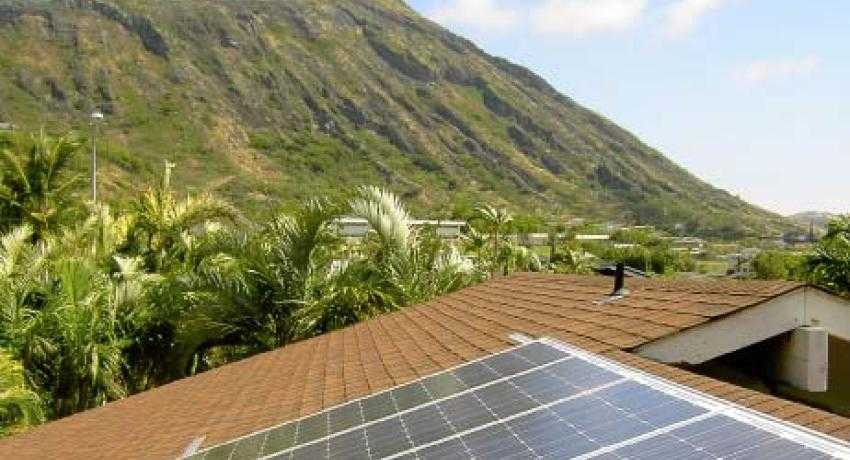HI legislation could shine light on new utility business model
As utility companies throughout the United States have launched campaigns to slow the “threat” of rooftop solar and distributed power generation, Hawaii stares down the barrel of a future where people actually abandon the grid.
Rooftop solar accounts for less than 1 percent of the power generation in most utility territories. In Hawaii, however, electric rates 2 to 3 times higher than they are on the mainland drive massive demand for solar. There are panels on one out of every 10 rooftops on most Hawaiian islands. Hawaiian Electric Companies, the utility, no longer allows new grid connections in most regions.
But that hasn’t stopped people from going solar.
Power rates are high enough in Hawaii and there are whole communities that function off-grid, demonstrating to everyone else that living off the grid isn’t just possible, but can be perfectly comfortable and affordable.
To save the grid, legislators have proposed two bills that would fund and force HECO to modernize its grid to allow for more solar generation.
The bills would allow the utility to get a higher rate of return on its investments in grid modernization and would appropriate $750,000 to aid the Hawaii Public Utilities Commission in researching the “technical and economic barriers” to grid-connected solar.
“This legislation is encouragement for the utility to change its business model and see distributed generation as it’s main revenue stream,” said Robert Harris, director of the Hawaii Sierra Club. “They’d be getting out of the generation game.”
The legislation is necessary because the utility isn’t trying to reinvent itself voluntarily, Harris said. The grid is a valuable service and one that is in genuine peril, especially as battery prices are predicted to begin slipping rapidly lower.
“They’re like Blockbuster watching Netflix come along,” Harris said. “We’re just trying to encourage them to get into the game.”
The idea would be to push the utility into a new business model that would ensure both the long-term viability of the electric grid and of the fast-growing solar industry in Hawaii.
“Instead of selling people electrons, they would be selling people a modern grid that connects people and distributes generation,” Harris said. “It would be less about the actual production of electricity.”
If the legislation passes, it would make Hawaii a leader, demonstrating to the rest of the country how utilities can evolve to survive without fighting distributed generation.
“Our politicians are well aware that this is tremendous,” Harris said. “If we screw it up, it will be the story of what not to do. If we’re successful, it will be the model.”




